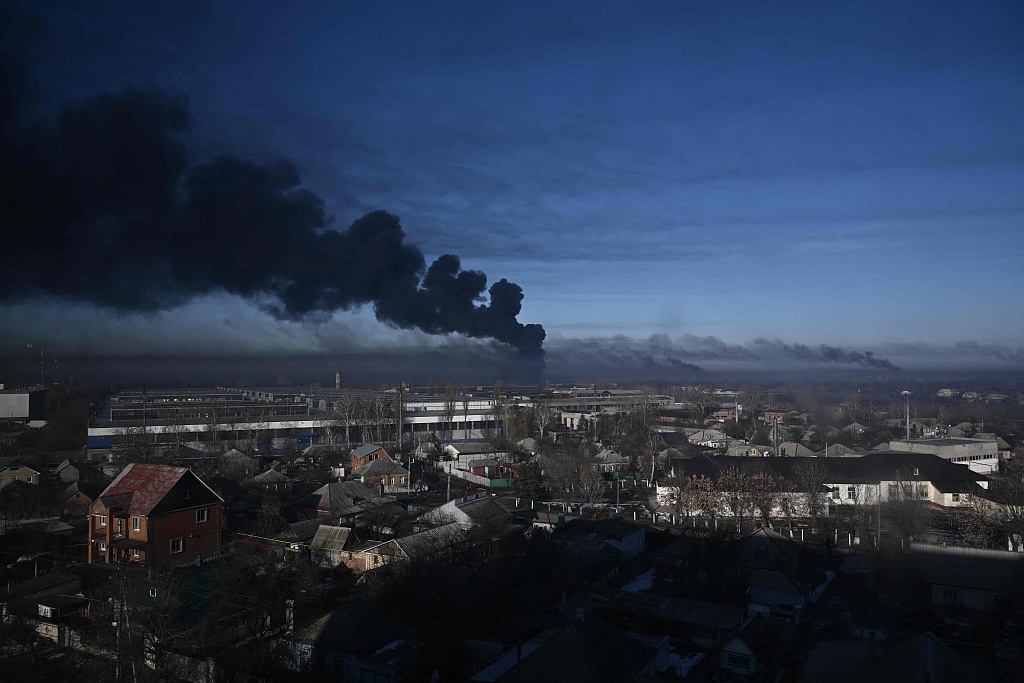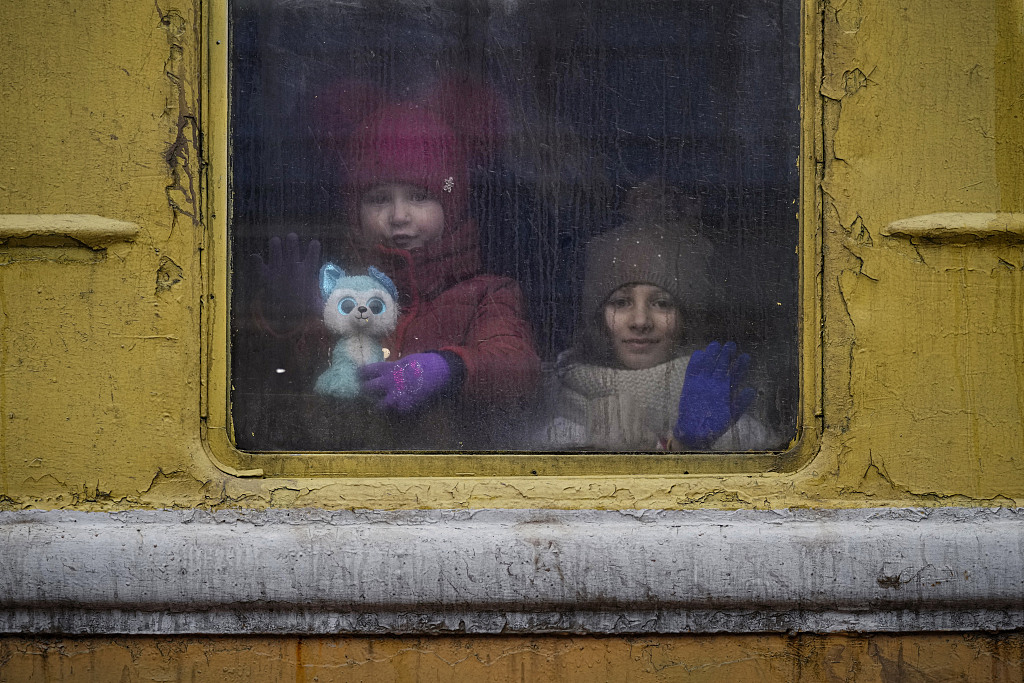Sponsored by the Organizing Committee of Beijing International Film Festival, the 13th Beijing International Film Festival "Forum on International Cooperation among Film Powers-Promoting Mutual Learning among Civilizations through the Bridge of Light and Shadow" was held in Beijing Yanqi Lake International Convention & Exhibition Center on the afternoon of April 24th (Monday).
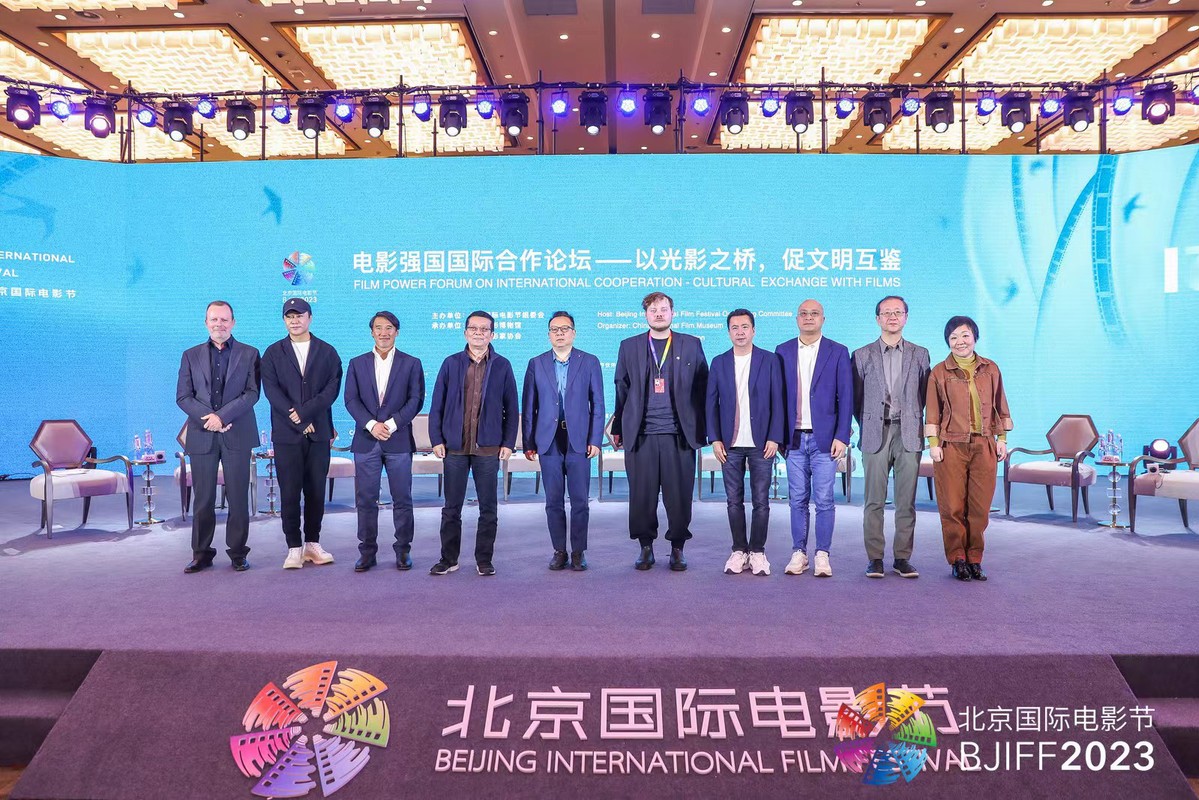
Xu Hejian, deputy director of the Propaganda Department of Beijing Municipal Committee, director of the Information Office of the Municipal Government and member of the Organizing Committee of the 13th Beijing International Film Festival; Caojun, member of the sub-party group of China Film Association, deputy secretary-general and second-level inspector; Chen Ling, Party Secretary and Curator of china national film museum, attended the forum. This forum was hosted by Lan Yu, the host of the movie channel. The guests present were French director and screenwriter Friedrich Obertin; Famous director and producer Chen Sicheng; American documentary director and producer Jimmy Chin; Famous director and producer Huang Jianxin; Hu Zhifeng, Professor and Doctoral Supervisor of Beijing Film Academy and Director of Academic Committee of Film and Television Society of China University; Russian director and screenwriter Ivan Tverdov; Wang Zhonglei, co-founder, vice chairman and CEO of Huayi Brothers Media Co., Ltd.; Yang Xianghua, President of iQiyi Film and Overseas Business Group; Professor of Tsinghua University School of Journalism and Communication, Yin Hong, Vice Chairman of China Film Association, and Zhao Fang, President of Warner Bros. Exploration Group in China.
Xu Hejian, deputy director of the Propaganda Department of Beijing Municipal Committee, director of the Information Office of the Municipal Government, and member of the Organizing Committee of the 13th Beijing International Film Festival, mentioned in his speech that movies, as an icebreaker of cultural mutual trust, provided an important platform and broad space for cultural exchanges and created potential and opportunities for communication and dialogue in the touch and integration of different countries and local cultures. Especially in the increasingly frequent and diverse cultural exchanges, movies have unique value in constructing the discourse system of China’s cultural communication to the outside world, and have become cultural messengers to promote exchanges and mutual learning among different civilizations. In his speech, caojun, member of the Party Committee, Deputy Secretary-General and second-class inspector of the China Film Association, said that in the great new era, China filmmakers should work together to build a bridge of light and shadow, and use this bridge to connect China with the world, bring the world’s appearance to the audience in China and tell the story of China to the world. Chen Ling, Party Secretary and Curator of china national film museum, said that film, as a common art form of human beings, is an important carrier for people all over the world to communicate with each other, with great cultural power and appeal. As an important part of cultural undertakings and industries, film is becoming an important medium for China to participate in the process of globalization and exert its international influence.
Friedrich Obertin, a French director and screenwriter, believes that the consensus of filmmakers all over the world is to find a good story, and the widest audience can be reached through scripts and stories, because this is the goal of the film.
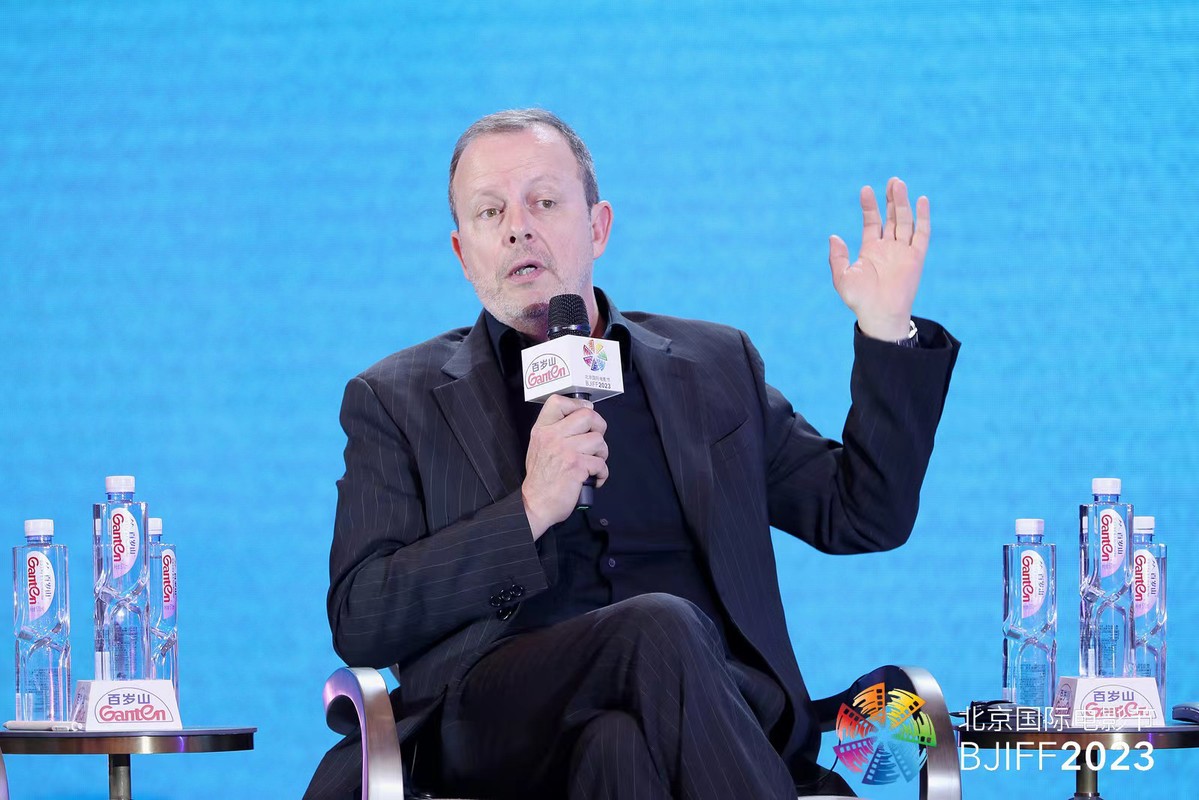
Chen Sicheng, a famous director and producer, said that he and his team have more experience in international cooperation, and deeply felt that each shooting is not only about finishing the work, but also about the profound understanding of local culture and customs and the exchange and learning with local filmmakers. Every time I shoot, there will be a lot of earth-shaking changes to the local cognition. "Reading thousands of books, taking Wan Li Road and shooting several films" is really a very important life experience.

Documentary director and producer Jimmy Chin excitedly showed his photos taken as a professional climber and skier to the audience and other guests, and said that it was his first time to attend the Beijing International Film Festival, where he could look at the development and challenges of the film from different angles. The production of movies is full of enthusiasm and passion, and movies are the best way to bring human beings together across countries and regions.

Huang Jianxin, a famous director and producer, said that the current international situation has brought many puzzles and challenges, and the film just has the power to break through culture, which is a way of communication that can be more simple through visual language. He believes that in film cooperation, filmmakers are always equal and there is no gap, and it is this strength and pursuit that promotes exchanges and cooperation among film countries.
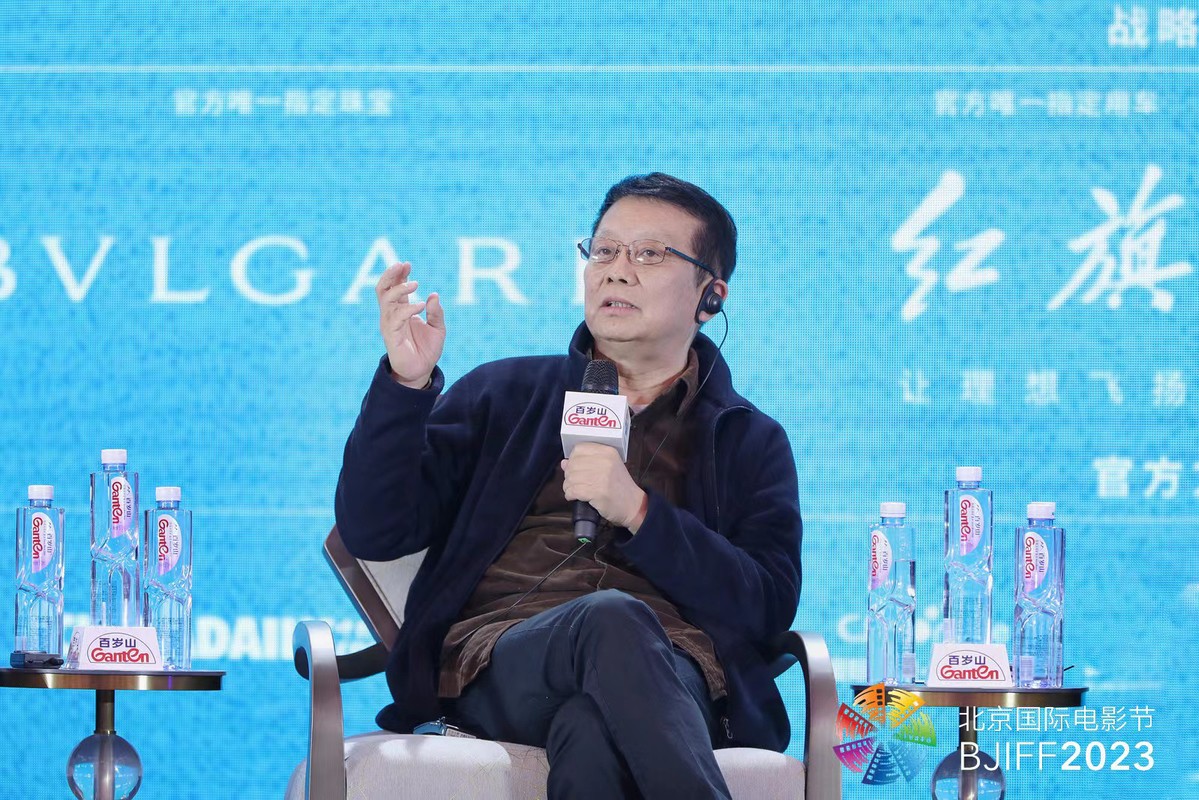
Hu Zhifeng, a professor and doctoral supervisor of Beijing Film Academy, pointed out that the film is irreplaceable because of its intuitiveness, vividness and depth, which can enter the depths of human emotions. Making a good film is the common aspiration of filmmakers all over the world. Film cooperation is the common aspiration of filmmakers, and it is also a common vision. It is expected that filmmakers from all countries can use the bridge of light and shadow to promote mutual understanding of civilizations.
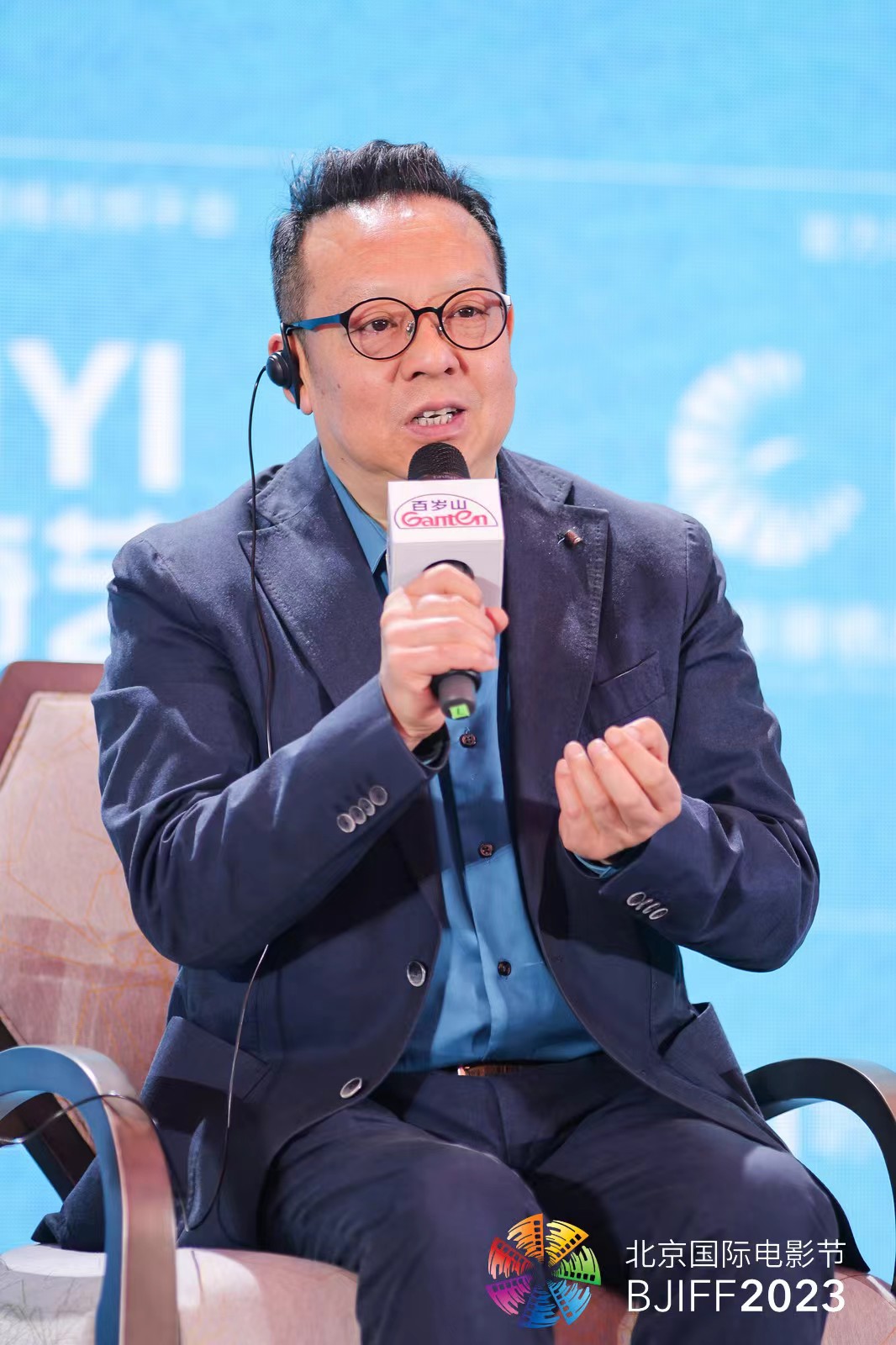
Ivan Tverdov, a Russian director and screenwriter, said at the forum that we are very optimistic about the cooperation between Russia and China now. We have a good foundation for cooperation, because we share common values, and the filmmakers of the two countries will work together to create a bright future for the film.
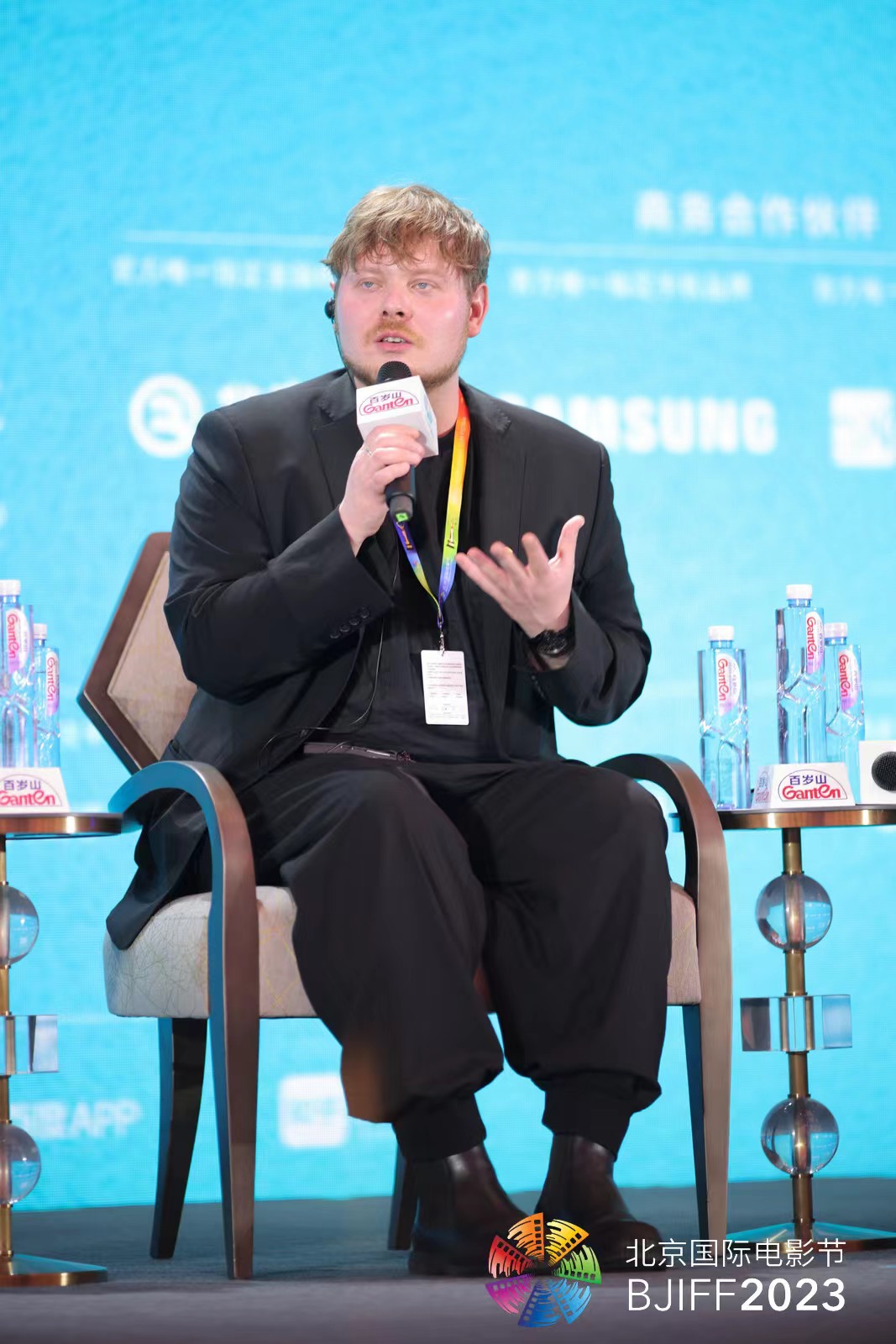
Wang Zhonglei, co-founder, vice chairman and CEO of Huayi Brothers Media Co., Ltd. said that the changes and development of the market and economy have changed the co-productions, and now the co-productions are facing new challenges and new situations. In addition to copying the successful experience of past cooperation, we need to have more exchanges and cooperation with international advanced film production companies to spread the culture and ideas of China.
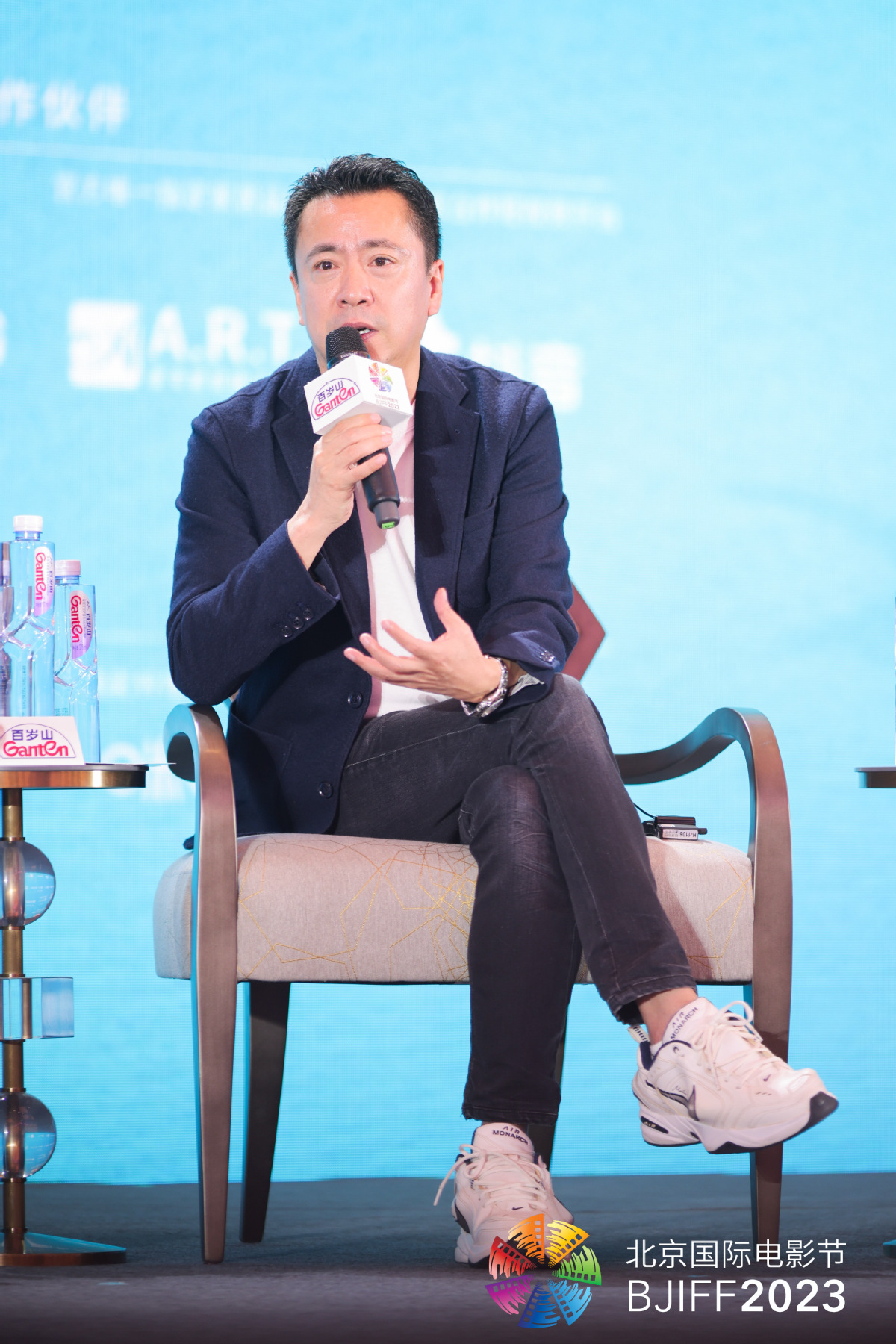
Yang Xianghua, president of Aiqiyi Film and Overseas Business Group, said that Aiqiyi, as a streaming media platform, has three major tasks, namely, introducing a large number of excellent foreign films, spreading China films to foreign audiences, and promoting more cooperative shooting of domestic and foreign films.

Yin Hong, a professor at Tsinghua University School of Journalism and Communication, said that to keep the door open for movies, we should continue to deepen cooperation in creation, marketing, production and distribution, and jointly explore the international film market, so as to achieve the role of mutual learning among civilizations.
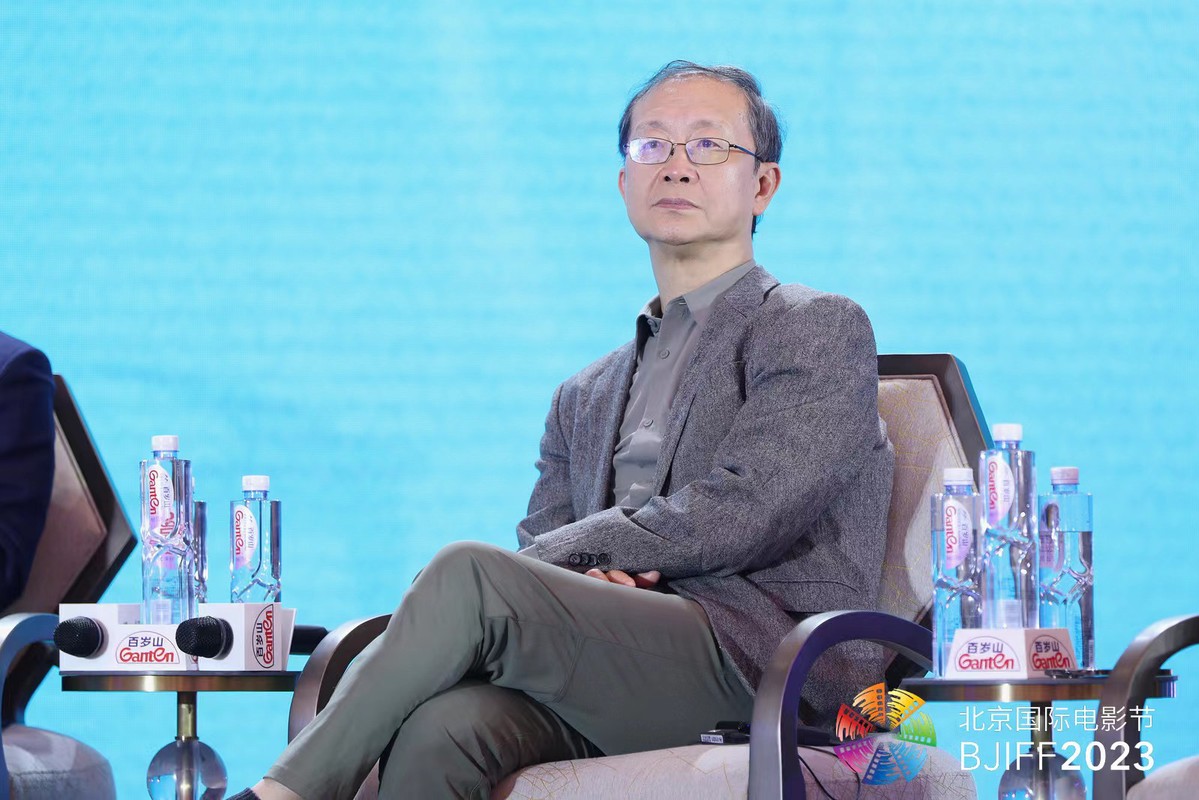
Zhao Fang, president of Warner Bros. Exploration Group in China, said that the China market is full of opportunities and cannot be ignored. Warner has always been committed to China and attached importance to the China market. During the development of China from a big movie country to a powerful movie country, Warner will continue to strengthen content cooperation and personnel training, and make contributions to the story of China.
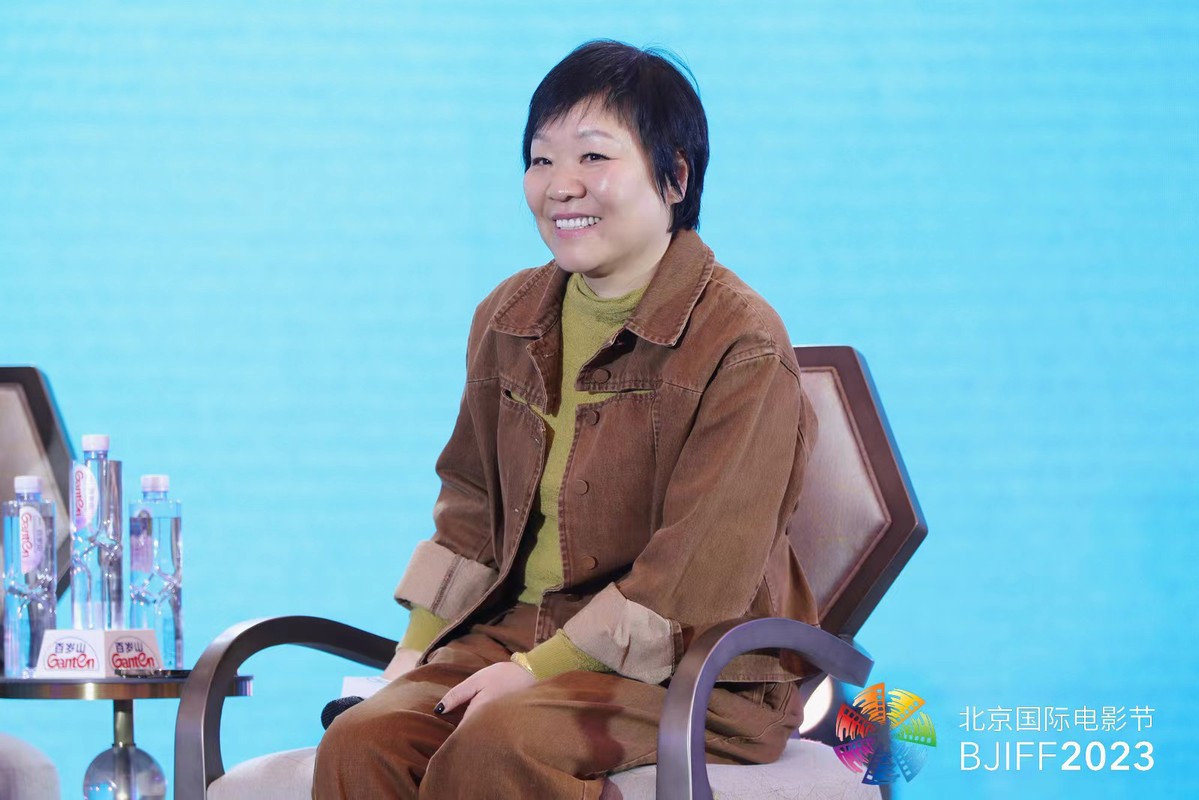
"Forum for International Cooperation of Film Powers-Promoting Mutual Learning of Civilizations through the Bridge of Light and Shadow" is rich in content, broad in vision and novel in ideas, and has conducted in-depth discussions on international film cooperation in the ideological collision and wisdom confrontation between Chinese and foreign filmmakers. The guests at the meeting are full of confidence in the future of international film cooperation, and firmly believe that the film industry will be able to open a new game in the changing situation, climb the peak again and create brilliant achievements again.
